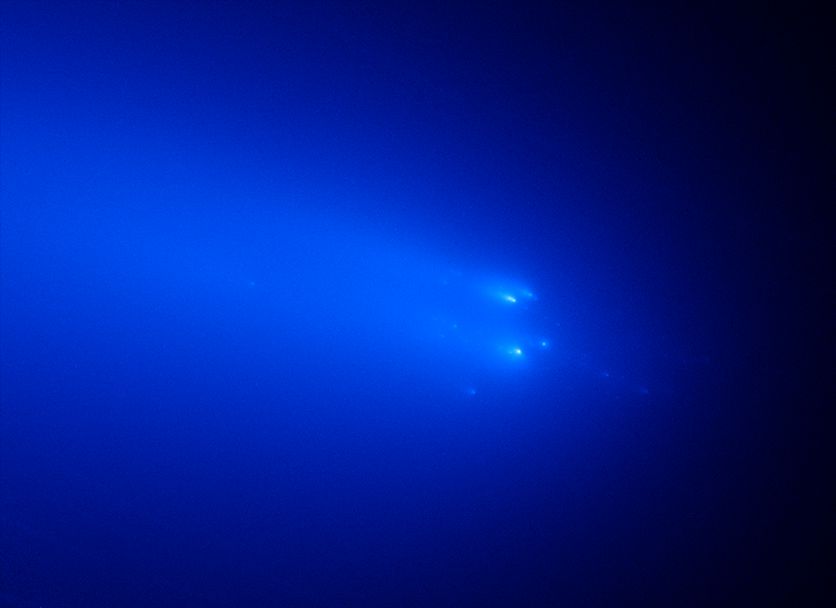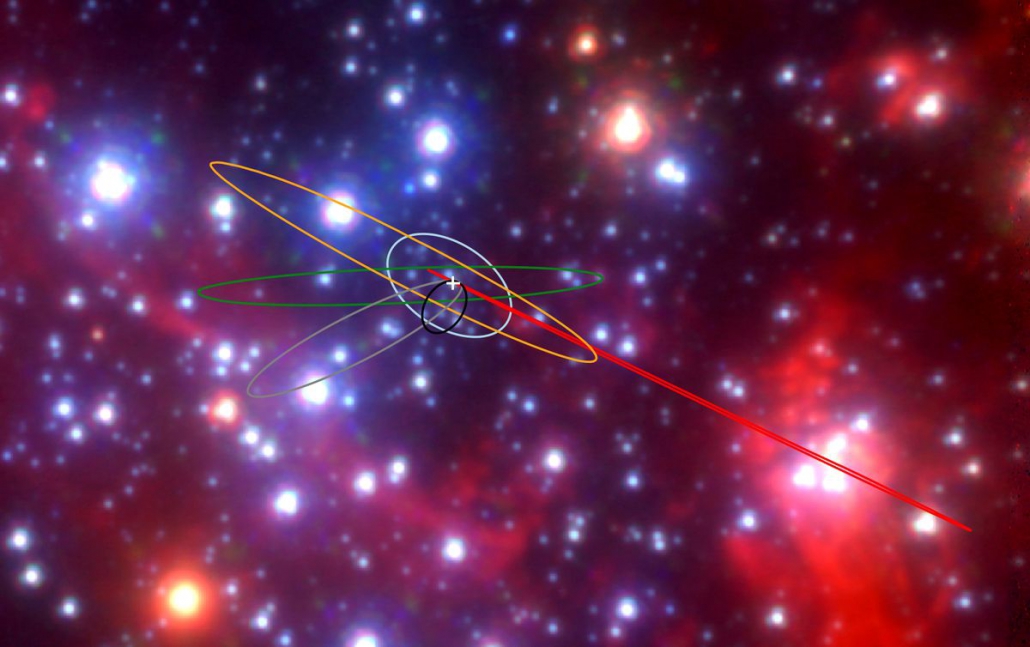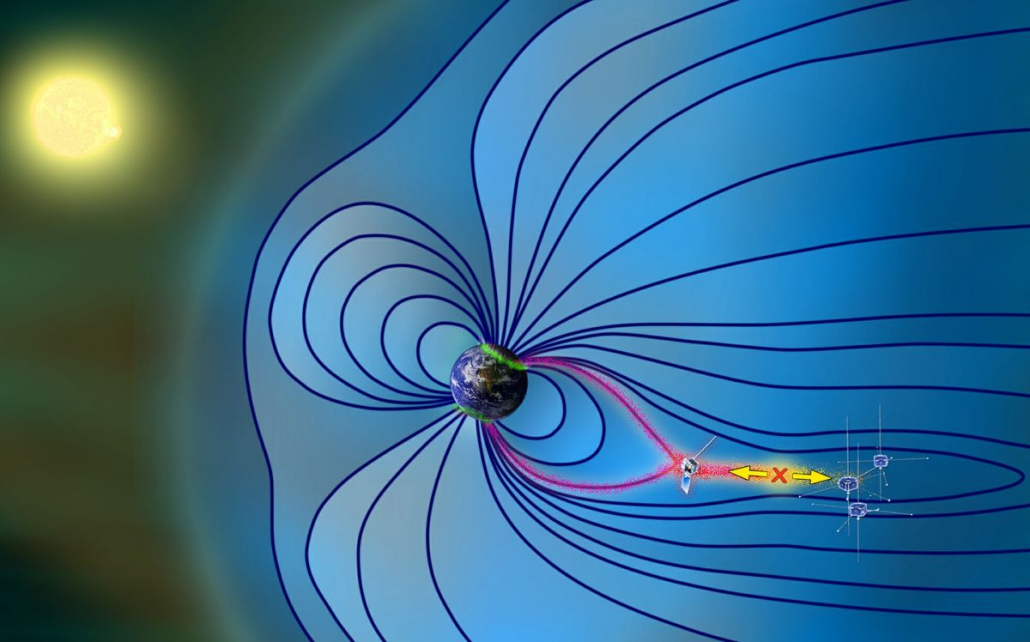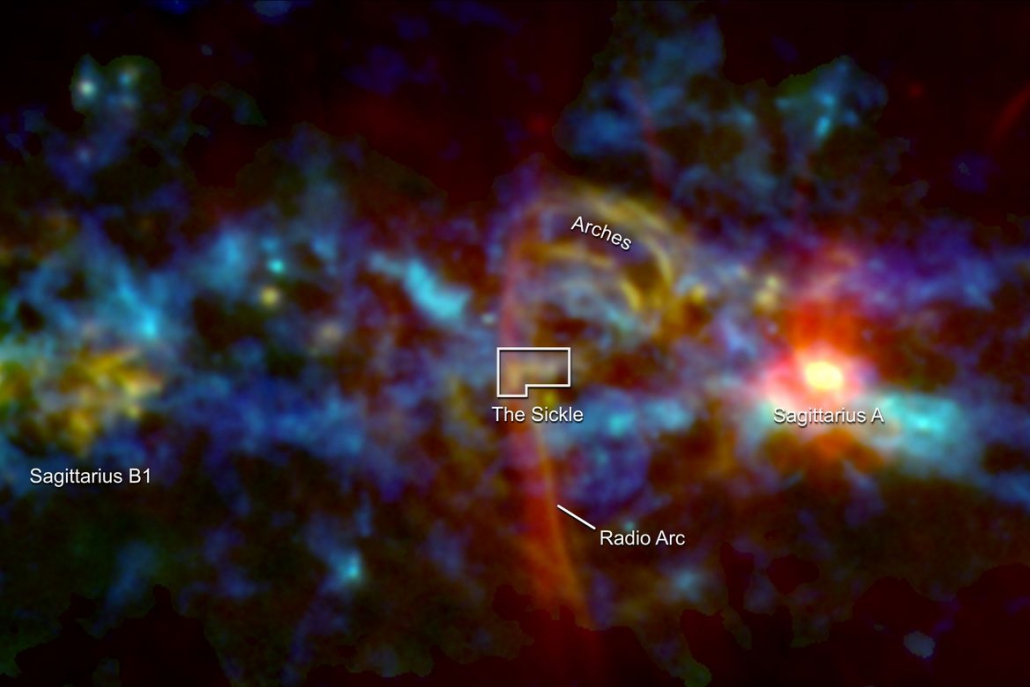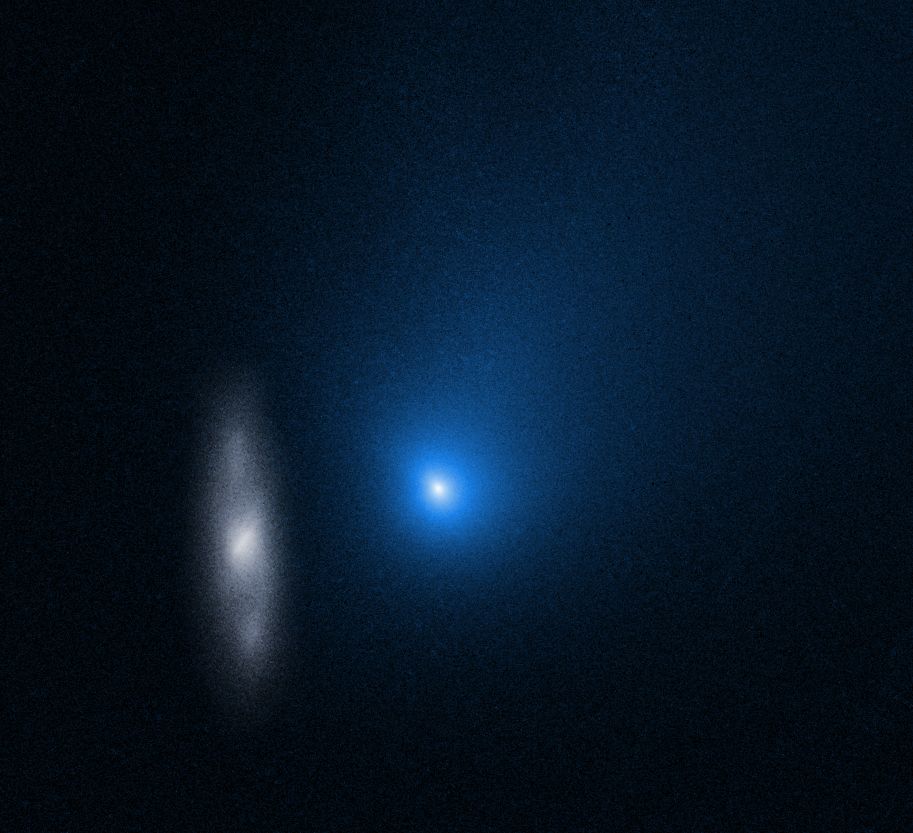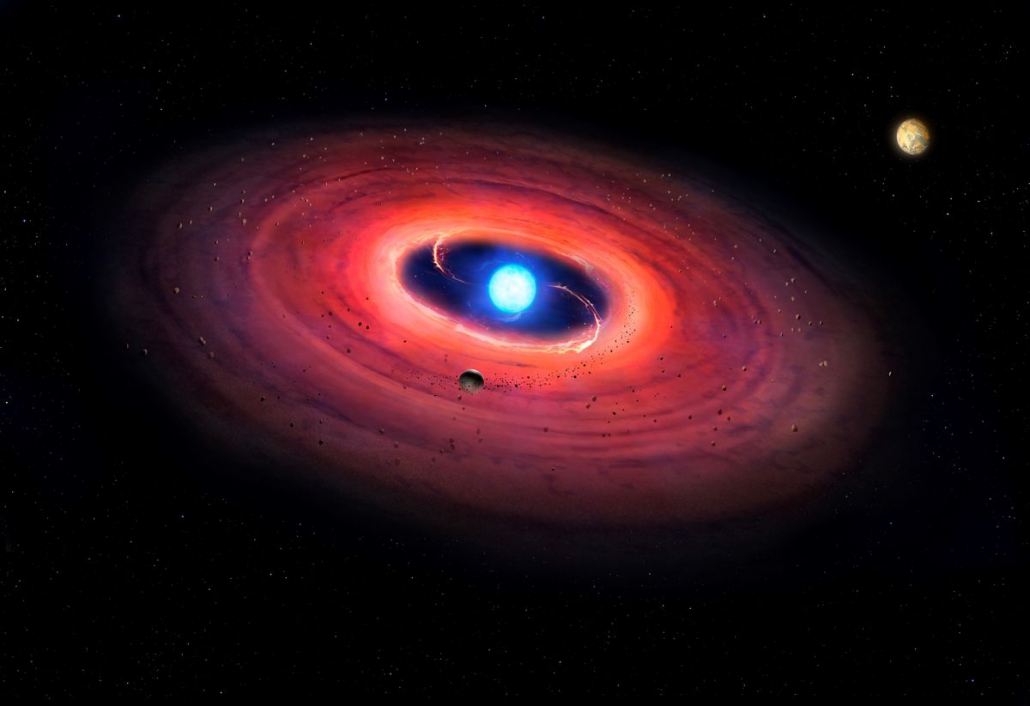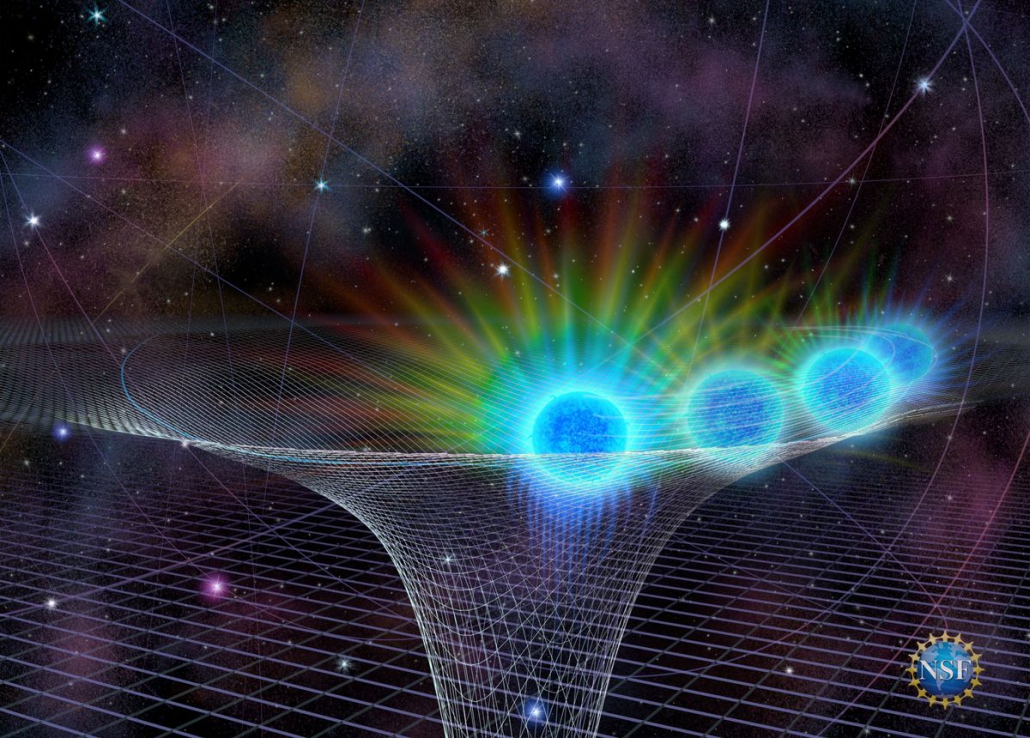Celebrate Space Day with UCLA College and learn about the extraordinary achievements and research from departments and groups like Earth, Planetary, and Space Sciences, Physics & Astronomy, and the Galactic Center Group among others. Their phenomenal work helps drive our understanding and exploration of space!
Disintegration of a comet observed by UCLA astronomer
In images captured in recent days by the Hubble Space Telescope, UCLA professor David Jewitt observed a comet breaking into more than two dozen fragments. These images are the sharpest views of the death of the fragile comet, known as C/2019 Y4.
Astronomers discover class of strange objects near our galaxy’s enormous black hole
Astronomers from UCLA’s Galactic Center Orbits Initiative have discovered a new class of bizarre objects at the center of our galaxy, not far from the supermassive black hole called Sagittarius A*. They published their research in the Jan. 16 issue of the journal Nature.
Researchers discover a new source of space weather – too close to home
A new study by the NASA THEMIS mission team — led by Vassilis Angelopoulos, a UCLA professor of space physics — is the first to show that such storms can originate much closer to Earth than previously thought, overlapping with the orbits of critical weather, communications and GPS satellites. The team’s findings are published in the journal Nature Physics.
Astronomers reveal new image of candy cane-shaped feature in the center of our galaxy
A team of astronomers has produced a new image of an arc-shaped object in the center of our Milky Way galaxy. The feature, which resembles a candy cane, is a magnetic structure that covers an enormous region of some 160 light-years. A light-year is the distance light travels in one year — almost 6 trillion miles.
New NASA image provides more details about first observed interstellar comet
A new image from NASA’s Hubble Space Telescope provides important new details about the first interstellar comet astronomers have seen in our solar system.
Ancient stars shed light on Earth’s similarities to other planets
Earth-like planets may be common in the universe, a new UCLA study implies. The team of astrophysicists and geochemists presents new evidence that the Earth is not unique. The study was published in the journal Science.
Black hole at the center of our galaxy appears to be getting hungrier
The enormous black hole at the center of our galaxy is having an unusually large meal of interstellar gas and dust, and researchers don’t yet understand why. Andrea Ghez, UCLA’s Lauren B. Leichtman and Arthur E. Levine Professor of Astrophysics and director of the UCLA Galactic Center Group and Galactic Center Orbits Initiative is co-senior author of the research.





